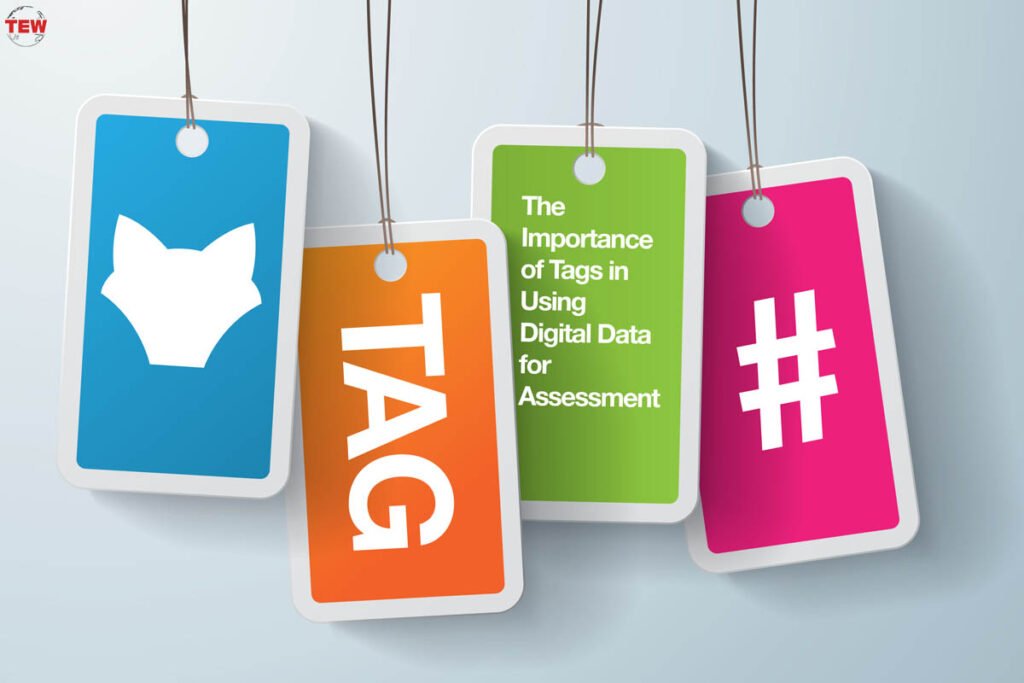Data is the lifeblood of any large organization, but without proper quality assurance and the help of a reliable data quality consultant software, it can quickly become a liability. Ensuring data quality is crucial for making informed business decisions, improving operational efficiency, and maintaining customer trust. In order to improve decision-making, operational efficiency, and customer trust, it is essential for large organizations to implement robust data quality assurance practices.
What is Data Quality?
Data quality is the overall fitness of data for its intended use. It involves making sure that data is accurate, complete, and reliable. In layman’s terms, it’s about ensuring that the data you’re using is good quality and can be trusted.
This is particularly important for larger organizations because they often rely on large amounts of data to make important business decisions, such as identifying new revenue streams or improving operational efficiency. Moreover, poor data quality can also lead to bad decisions, inefficiencies and eventual loss of customer trust. Thus, by implementing a robust data quality assurance program, large organizations can ensure that their data is accurate, complete, and reliable, which will help them make better decisions, improve their operations, and maintain customer trust.
What is Data Quality Assurance?
Data quality assurance (QA) is the process of identifying and eliminating errors, inconsistencies and inaccuracies in data. This process includes several techniques such as:
- Data profiling: analyzing data to identify patterns, statistics and inconsistencies
- Data validation: checking data against a set of rules or constraints to ensure it is accurate and complete
- Data cleansing: removing or correcting inaccurate or inconsistent data

Implementing a robust data quality assurance program can assist larger organisations in streamlining their processes by improving data accuracy, completeness and reliability, which in turn can lead to better decision-making and improved operational efficiency.
Data QA can also help organizations identify and remove duplicated data and data outliers, which can lead to cost savings and improved data analysis. Overall, Data Quality Assurance is an essential practice for large organizations as it helps to ensure that the data used is reliable and accurate which in turn helps in making better decisions, improving operational efficiency and maintaining customer trust.
Why is Data Quality Essential for Enterprise-level organizations ?
Data quality assurance (QA) is essential for enterprise-level organizations as it ensures that the data used is accurate, complete, and reliable, which is crucial for making informed business decisions, improving operational efficiency, and maintaining customer trust.
Website analytics rely heavily on the quality of data collected, processed and analyzed. Poor data quality can lead to inaccurate website metrics, skewed user engagement statistics, and incorrect conclusions about website performance. Data quality assurance (QA) is essential in ensuring that website analytics data is accurate, complete, and reliable.
By implementing robust data QA processes, organizations can identify and correct errors, inconsistencies, and inaccuracies in website analytics data, leading to more accurate and actionable insights. This can assist organizations in making data-driven decisions for website optimization, improving user experience, and increasing conversions. Overall, data QA plays a crucial role in ensuring the accuracy and reliability of website analytics data, which is essential for making informed decisions that drive business growth.
What are the Benefits of Quality Data?

The benefits of quality data for enterprise-level organizations include:
1. Improved decision-making:
High-quality data allows organizations to make more informed decisions that drive business growth.
2. Increased operational efficiency:
With accurate and reliable data, organizations can streamline their processes and optimize their operations.
3. Enhanced customer trust:
Maintaining data quality can help organizations to protect customer data and maintain customer trust.
4. Improved understanding of customer needs:
Know your data, know your customers. Accurate data can provide insights for better customer segmentation, as well as cross-basket opportunities.
5. Better website analytics:
Data quality assurance is essential for ensuring that website analytics data is accurate, complete, and reliable, which leads to more accurate and actionable insights.
6. Increased conversions:
Accurate website analytics data can assist organizations in making data-driven decisions for website optimization, improving user experience, and increasing conversions.
7. Cost savings:
Data Quality Assurance can help organizations to identify and remove duplicated data and data outliers, which can lead to cost savings.
8. Improved data analysis:
Quality data allows for more robust data analysis, which can reveal insights and opportunities that would otherwise go unnoticed.
Overall, data quality assurance is essential for enterprise-level organizations as it ensures that the data used is accurate, complete, and reliable, which is crucial for making informed business decisions, improving operational efficiency, and maintaining customer trust.
What are the Disadvantages of Incorrect or Inaccurate Data?

Inaccurate or incorrect data can be a nightmare for any organization, but it can be particularly devastating for larger organizations that rely heavily on data to make important business decisions. Incorrect data can lead to a litany of problems such as:
1. Inefficient operations:
With inaccurate data, organizations can struggle to optimize their processes, resulting in wasted resources and lost revenue.
2. Poor decision-making:
Incorrect data can lead organizations to make bad decisions that can negatively impact their bottom line.
3. Damage to reputation:
Incorrect data can lead to loss of customer trust, damaged reputation and loss of business.
4. Unnecessary Costs:
Incorrect data can lead to additional costs in terms of rectifying the errors and lost revenue due to poor decision-making.
5. Legal issues:
Incorrect data can lead to legal issues and penalties for non-compliance.
In short, inaccurate data can lead to significant financial losses, damage to reputation and legal issues. Larger organizations can’t afford to take the risk of inaccurate data, and that’s why it’s essential for them to implement robust data quality assurance solutions to ensure that their data is accurate, complete, and reliable. Don’t let inaccurate data hurt your organization, instead invest in data quality assurance solutions and safeguard your organization’s future.
How Can You Prevent Inaccurate Data on Websites?
In today’s digital age, big data plays a crucial role in understanding customer behaviour with the use of methods such as website analytics., optimizing website performance, and driving conversions. However, inaccurate website analytics data can lead to poor decision-making, wasted resources, and lost revenue.
So, how can you prevent inaccurate data on your website? By implementing holistic data solutions. These solutions can help you identify and correct errors, inconsistencies, and inaccuracies in website analytics data, leading to more accurate and actionable insights. With the help of data QA, you can ensure that your website analytics data is accurate, complete, and reliable, allowing you to make data-driven decisions that drive business growth. Don’t let inaccurate website analytics data hurt your organization, instead invest in data quality assurance solutions and safeguard your organization’s future.
How Do Tags Assist with Data Quality?
Tags are an essential part of any website analytics and data collection strategy. They allow you to track user behaviour, measure website performance, and gain valuable insights into customer behaviour. But what many people don’t realize is that tags also play a critical role in data quality assurance.

By properly implementing tags and using tag management solutions, organizations can ensure that their data is accurate, complete, and reliable. These solutions can help you identify and correct errors, inconsistencies, and inaccuracies in the data, leading to more accurate and actionable insights. Additionally, tags can assist organizations to comply with data privacy regulations, such as GDPR and CCPA, by giving them the ability to control and manage the data that is being collected on their website.
In short, tags are not just a tool for website analytics, they are a crucial part of data quality assurance. With tag management solutions, organizations can ensure that their data is accurate, complete, reliable and compliant with data privacy regulations. Invest in a tag management solution today, and take the first step towards improving the quality of your data.
Extract Meaningful Data Insights Using Accurate Tags
So, how can you extract meaningful data insights using accurate tags? Here’s a breakdown of the process:
- Identify the key metrics and events you want to track on your website. These could include page views, button clicks, form submissions, etc.
- Implement tags to track these metrics and events. This can be done using a tag management solution, which allows you to easily add and manage tags on your website.
- Use data validation and data profiling techniques to check the accuracy and completeness of your data. This can help identify any errors, inconsistencies, or inaccuracies in the data.
- Use data cleansing techniques to remove or correct any inaccurate or inconsistent data. This can help improve the overall quality of your data.
- Analyze the data to extract meaningful insights. This could involve creating reports and visualizations to understand user behaviour, website performance, and customer demographics.
- Use the insights to inform decision-making and optimize website performance. This could involve making changes to the website design, improving user experience, or targeting specific segments of users.
By following these steps, organizations can ensure that their data is accurate, complete, and reliable, which is crucial for extracting meaningful insights and making data-driven decisions that drive business growth. Invest in a tag management solution and data quality assurance techniques, and start extracting meaningful insights from your website data today.





